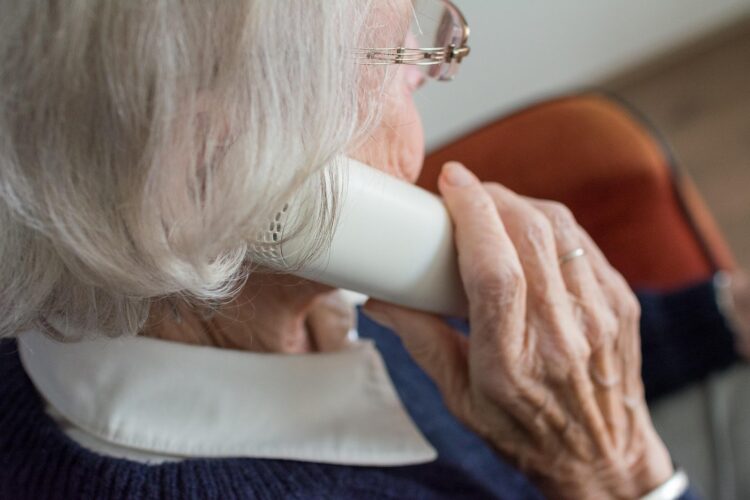All over the world, thousands of people find themselves caring for a loved one. It might be their dad, mom, aunt, uncle, grandparents, or siblings. A common hazard for seniors is falling. Elderly people are at increased risk of falling and the possibility of serious injuries and even death. The reasons could be decreased or impaired vision, loss of balance, and muscle strength.
Luckily, there are steps caregivers can take to help their loved ones. For example, medical alert devices can be used to alert emergency services should your loved one fall and need assistance.
Caring for a senior loved one can be challenging but it can also be very rewarding. If you find yourself in such a situation, the following tips could help both you and your loved one.
Visit Your Loved One Regularly
Social interaction is important for people as they get older. It’s also vital for you as well because it means you can check they’re safe, doing well, and generally healthy.
When you visit them in their home, take the opportunity to check around their home for anything that needs addressing. For example, something might need cleaning or fixing. You can also check there is enough food in their cupboards, they’re doing their laundry, watering their plants, and dealing with their mail.
Check They are Taking Their Medications
Your loved one will likely need to take medication for various conditions. It’s therefore crucial that their prescriptions are filled and refilled when necessary. If they’re taking more than one medication, you could get them a pill box organizer, labeling it with the days of the week.
Some medical alert devices have a medication function. Some services can call your loved ones to remind them about taking their medication.
See if Help is Available
It might not be possible for you to be there whenever you’re needed. In such cases, you might need a helper, aide, or caretaker. Such people will be able to help your loved one with various daily activities such as making meals, housekeeping, showering, or errands.
If you find yourself hiring help for your loved one, go through a licensed agency, or check references very carefully. It’s also possible that your loved one may qualify for free help.
Make Modifications
It’s not uncommon for seniors to want to continue living in their own homes for as long as possible. Their home may need some kind of modification such as:
- Handrails and grab bars
- Wheelchair ramps
- Smoke detectors and carbon monoxide
- Raised toilet
- Auto-sensor nightlights
- Brighter lighting
- Non-slip mats in the shower or bathtub
- Rearranging their furniture
- Removing clutter
- Tidying away cables, wire, and chords
- Removing small rugs
Don’t be Afraid to Discuss Finances and Important Paperwork
Seniors aren’t always comfortable talking about their finances, but they must be encouraged to discuss their finances openly. Such discussions are especially important if your loved one’s income is fixed or they’ve got a budget they’ve got to stick to.
With regards to their paperwork, you should try to check that everything is complete and up-to-date. For example, it’s beneficial if they’ve written a Will or Power of Attorney.
Encourage Them to Stay Active
Exercise is important whatever age you might be but it’s especially important for loved ones who are getting older. It’s all too easy for the elderly to feel isolated and lonely. Depression is also a serious risk.
Making sure they stay active will be a way of keeping them involved with friends and family. It will also give them a reason to venture out and make new friends.
Make Sure They Eat Healthily
It’s easy to lose enthusiasm for cooking for themselves. However, healthy eating is important. You could help out by preparing meals for them in advance. They might also qualify for a home delivery food program such as Meals on Wheels.
Take Care of Yourself
When you take care of someone it’s easy to lose sight of yourself. It’s not unusual for elder carers to suffer from anxiety, depression, musculoskeletal disorders, and stress. Something else that might help would be to find another relative who is willing to share the responsibility.
Take Advantage of Available Resources
There are lots of different resources available for the elderly and their carers. Some are provided by the government, while others are more community-based. Spend some time researching your options online because you’re almost certain to find something they will qualify for and benefit from.
Check on Their Driving Abilities
Eventually, your loved one will be unable to drive. It could be because their cognitive abilities or reaction times are declining. Being able to drive means they are more independent, so it’s not something they’ll be willing to forego unless they have to.
Assess their driving abilities as often as you can and when it becomes an issue, offer options that will help them keep their independence.

